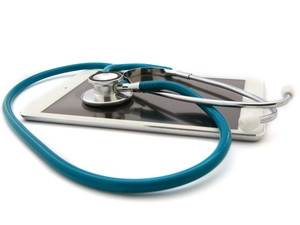
As technology increasingly finds its way into the local healthcare space, companies outside the medical sphere are finding ways of using their expertise to change the way practitioners and patients interact with each other in SA and across the continent.
RecoMed - a local Web-based solution ? aims to combine social functionality with information services, allowing users to search for doctors in their area, review their experiences, compare qualifications as well as book appointments online.
According to Joseph Morcos, RecoMed's spokesperson, more than 4 000 doctors are already on the platform, while the company aims to get more on board by training receptionists at participating practices to use the booking solution. "The site opened at the end of 2013 and aims to improve transparency in the healthcare space by giving users more informed choices of prospective doctors when they look at the reviews from previous patients.
"We're aiming to expand our database of doctors in less urban locations, since many of them are currently based in metropolitan areas," he says. The Web site also geo-locates doctors' practices.
Morcos adds the platform is modelled on US-based Zoc Doc, which launched in 2007 and also focuses on aggregating doctor information and user reviews. RecoMed is an entity of Cape Town-based technology start-up incubator Springlab and monetises its solution by charging doctors a monthly subscription fee, while members of the public use it for free.
Public healthcare ties
Cell-Life, a non-profit organisation that links up its mobile health (m-health) research projects with public health departments, is working with the Department of Health to find solutions that could possibly be implemented across a wide scale.
According to Annie Parsons, project co-ordinator at Cell-Life, the company aims to develop solutions that can be used by the majority of SA's cellphone-using population - which includes older device models. "Sometimes, instead of focusing on smartphone apps, we would look at USSD strings for users to be able to access certain information or services."
One of the company's projects with the Department of Health involves equipping trained community healthcare workers with mobile phones and enabling them to register potential tuberculosis cases from different households, as well as pre-natal care for pregnant women.
According to Morcos, RecoMed will also focus on building ties with local medical aid companies to get more doctors on board and boost familiarity among patients. "Other functionality that we are looking at in future includes building a patient management system for billing and payments. We would also like to expand to other African countries and perhaps Asia," he says.
Meanwhile, the GSM Association has focused on mobile devices, with the launch of its ecosystem partnership in July, aiming to provide solutions for Sub-Saharan Africa's cellphone users by giving them access to various health-based apps and information services.
Share